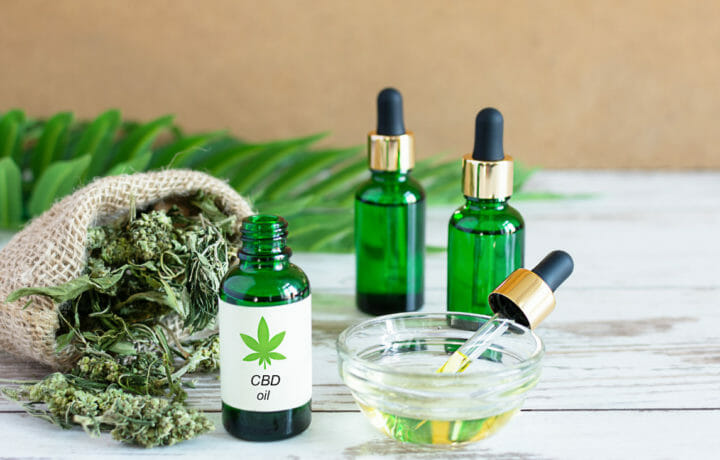Times have been changing – especially when it comes to prior marijuana use and national security careers. Previously, admitting to prior marijuana use negatively impacted clearance holders. But even in the intelligence world, agencies have reduced the time clearance holders need to wait to apply after their last marijuana use. So, what about CBD? The 2018 Farm Bill federally legalized hemp and its derivatives like CBD containing up to a certain concentration of THC. So, it should be legal and okay for clearance holders to use, right? The answer to that is a bit all over the place.
CBD Use at the FBI
A recent FBI job posting on Twitter had the agency responding to questions from the audience. Their responses to one question confirmed just how murky CBD use is throughout the cleared community. One audience member specifically asked about marijuana and CBD use. Marijuana use appears to be more cut and dry for clearance holders. Most find that former use is not a disqualifier – even in the intel community. But when people want to use CBD products, the answers get less straightforward.
The FBI did clarify that their response is specifically about the open position and doesn’t apply to the FBI as a whole. But their response was in line with their current employment policy on cannabis as a whole. Here’s how they responded on Twitter during a Q&A:
“Although the use of marijuana & CBD may be legal at the state level, their use is an automatic disqualifier for FBI employees and contractors,” FBI Denver said in response to a question on Twitter. “You must wait for at least one year from your last use of CBD or marijuana before applying to the FBI.”
Who Allows CBD Use?
According to Sean Bigley, security clearance attorney, “CBD use is currently an agency-specific policy issue. There is no government-wide policy on federally-legal CBD use other than 2021 guidance from ODNI essentially just educating agencies on the Farm Bill and confirming that this is a ‘proceed at your own significant risk’ situation (for products that purport to be federally compliant) unless otherwise subject to policy banning CBD use (currently, only agency-specific suitability policy and members of the military).”
So, while it may not be clear in the policy, Bigley adds, “It can be a security clearance issue, though, if the government thinks the person is actually using marijuana and that’s why they’ve tested positive for THC on a drug test.”
And that’s how most clearance holders run into issues with CBD. While it’s not a specific question on the SF-86, clearance holders required to pass drug tests might run into issues because THC levels are not regulated by the FDA in CBD, meaning not all CBD products are the same.
Bigley noted that, “Most federal agencies (including the FBI) are making up the rules on CBD use on the fly. DoD and the Coast Guard are the only agencies I’m aware of that have issued formal written policy guidance on the topic – in the form of a ban on service members using any CBD products, including the now-federally legal variety. That ban initially struck a lot of people as antiquated and harsh, but the silver lining has been complete clarity. Every other agency I’m aware of has recommended against CBD use but essentially said ‘proceed at your own risk’.”
So, even if you work for an agency that leaves it up to employees, plenty of people test positive for marijuana from CBD products. Whether products were mislabeled or their was enough build up in the bloodstream doesn’t really matter with a positive marijuana result. It becomes a headache for the clearance holder to prove the source and that they are reliable and using good judgement.
Bigley goes so far as to caution clearance holders to not even touch CBD products – even if they claim to be federally compliant. The risks of mislabeling or a false positive drug test are too high.
At the End of the Day…
The FBI is not alone in attempting to soften prior rules. And that’s not necessarily because the agency or others in the DoD and Intelligence Community have completely changed their minds about cannabis. Rather, they have a recruiting problem. Like others in the government, the FBI is worried about missing out on skilled workers who cannot pass their drug requirements. Marijuana usage has increasingly become more common, so many have adjusted policies so that former users are not automatically disqualified.
While the federal government has eased up restrictions on former use, they continue to maintain a stance against current and continuing use once you already have a security clearance. But keep in mind that suitability requirements differ from hard and fast security clearance rules and regulations.
Bigley shared, “Agencies have wide latitude in setting job-specific or agency-specific suitability guidelines that supplement the National Adjudicative Guidelines for Security Clearances. And at the FBI, the vast majority of prospective new-hires are tossed on suitability grounds as opposed to security grounds.”
Bottom line for now? If you want to work in national security, you either need to be prepared to prove your CBD use is legal or find an alternate solution. Most, like Bigley, would argue that it’s not worth the risk of your clearance or job.
This article is intended as general information only and should not be construed as legal advice. Although the information is believed to be accurate as of the publication date, no guarantee or warranty is offered or implied. Laws and government policies are subject to change, and the information provided herein may not provide a complete or current analysis of the topic or other pertinent considerations. Consult an attorney regarding your specific situation.



